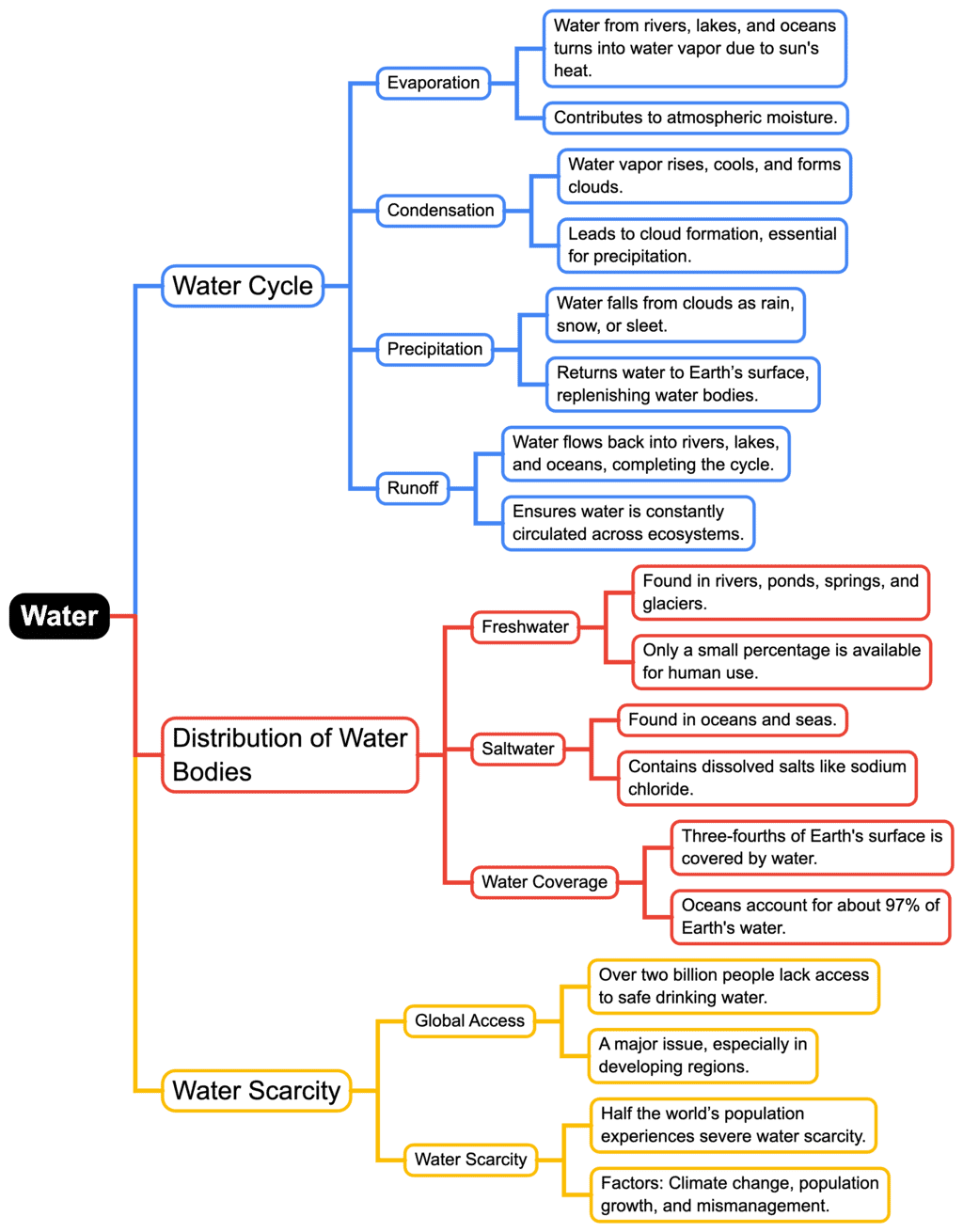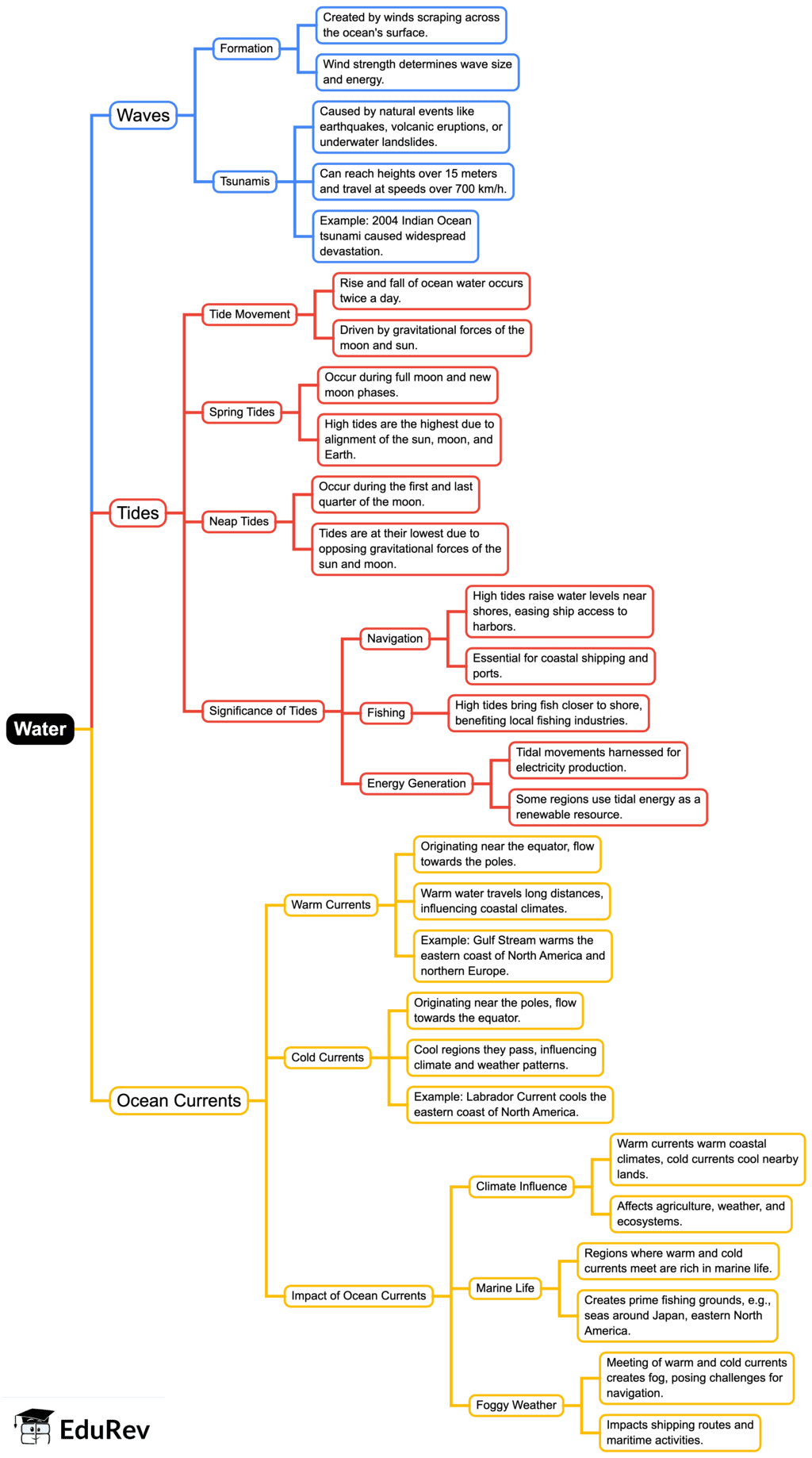Class 7 Exam > Class 7 Notes > Social Studies (SST) Class 7 (Old NCERT) > Mind Map- Water
Mind Map- Water | Social Studies (SST) Class 7 (Old NCERT) PDF Download


The document Mind Map- Water | Social Studies (SST) Class 7 (Old NCERT) is a part of the Class 7 Course Social Studies (SST) Class 7 (Old NCERT).
All you need of Class 7 at this link: Class 7
|
63 videos|371 docs|46 tests
|
FAQs on Mind Map- Water - Social Studies (SST) Class 7 (Old NCERT)
| 1. What is the importance of water for living organisms? |  |
Ans. Water is essential for all living organisms as it is a crucial component of cells, helps in metabolic processes, regulates body temperature, and transports nutrients and waste. It plays a vital role in maintaining physiological balance and is involved in various biochemical reactions.
| 2. What are the different sources of water? |  |
Ans. Water sources can be categorized into two main types: surface water and groundwater. Surface water includes rivers, lakes, and reservoirs, while groundwater is found in aquifers beneath the earth's surface. Additionally, rainwater harvesting and desalination are alternative sources of fresh water.
| 3. How does the water cycle work? |  |
Ans. The water cycle consists of several processes: evaporation (water turns into vapor), condensation (vapor forms clouds), precipitation (water falls as rain or snow), and infiltration (water seeps into the ground). This continuous cycle is essential for replenishing water sources and supporting life on Earth.
| 4. What are the major causes of water pollution? |  |
Ans. Water pollution can be caused by various factors, including industrial discharge, agricultural runoff (pesticides and fertilizers), sewage and wastewater, plastic waste, and oil spills. These contaminants can harm aquatic ecosystems and pose health risks to humans and animals.
| 5. How can we conserve water? |  |
Ans. Water conservation can be achieved through practices such as fixing leaks, using water-efficient appliances, collecting rainwater, reducing water usage in daily activities (like shorter showers and turning off taps), and promoting awareness about the importance of water conservation in the community.
Related Searches
















